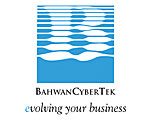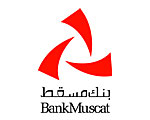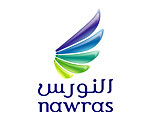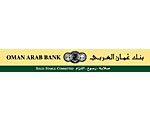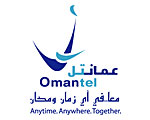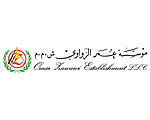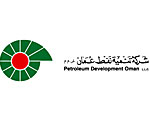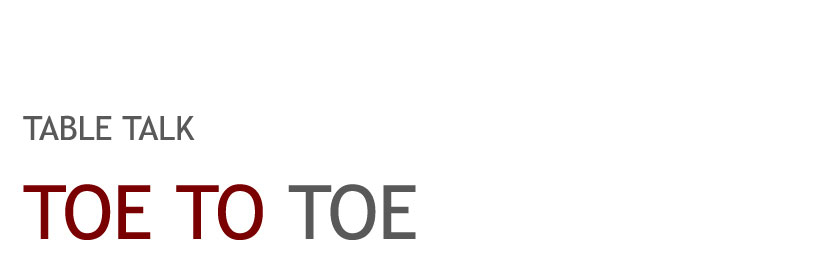
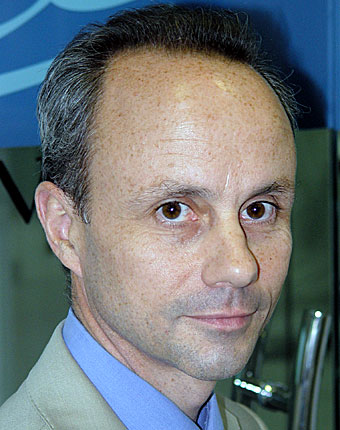
Marc de Marcillac serves as Sales Director of Omantel. Prior to joining Omantel, he was Head of Consulting at GBM, IBM’s agent in the Gulf. Before that, Marc followed a fifteen year career in sales and technical support at IBM. DO caught up with Marc to talk privatisation, Internet and corporate culture.
DO: Can we start out with a little history and a quick overview of Omantel?
MM: As you know, Omantel came out of the old Government Telecommunications Organisation, part of the Ministry of Telecommunications. It’s still the monopoly supplier of fixed telephony in the Sultanate, but after splitting off Oman Mobile as a separate operating entity last year, mobile communications are now subject to competition. Omantel has a commanding infrastructure in Oman, covering the entire country including many remote rural areas. It offers a full range of fixed and mobile telephony services, data circuits, Internet services, international interconnection and other value added services.
DO: How big is the market today?
MM: Oman’s market is simple to quantify as for mobile services it equals Oman Mobile plus Narwas and for fixed services it equals Omantel. A more interesting question is what’s the potential market size? I see a market in which a large proportion of households don’t even have a land line, in which the addressable Internet market is the highest in the GCC, and in which business is thriving and is hungry for new value added services. Omantel’s challenge -indeed my challenge as its Sales Director - is to offer innovative and world-class solutions to drive this latent demand. Now the challenge is Omantel’s, but our success will bring social and financial benefits to the country, to its citizens, to its businesses. Indeed, our success will enhance Oman’s ability to compete as a nation in the global market.
DO: As we look at Omantel over the next couple of years, what are the benchmarks investors can use to judge your progress?
MM: I believe that these benchmarks should be the same that we, as an organisation going through change, have set for ourselves. First and foremost is improving the quality of customer service. This isn’t just the imperative of an organisation moving from quasi- Government/monopoly towards privatisation/competition, it’s the imperative of any telco anywhere in the world. Indeed, to our investors, progress with this will be the most obvious sign of improvement, as the benchmark won’t be met unless we make fundamental improvements and changes to every aspect of our business. I anticipate that our investors will also be able to see evidence from our internal improvements and changes, from our financial performance, from our ability to win in a competitive market, and from our willingness and ability to invest in our people and our technological infrastructure. My aim is to ensure that my sales team contributes 200% to achieve these benchmarks in the shortest possible time.
DO: What kind of overall growth can investors expect from Omantel in the next three to five years?
MM: Our growth will be dictated by three main factors. First, growth in the existing market, and this is tied to the Sultanate’s economic growth, the price of oil and the development of the nonoil sector. This factor is out of Omantel’s control - although I see a key role for us to ensure that telecommunication services are there to facilitate economic development. Second, the advent of competition. The only certainty about this is that Omantel’s market share will fall - mathematically it can’t remain 100%. This factor certainly is under our control and my conviction is that the advent of competition is the best thing that has ever happened to Omantel. You can see already the changes that Oman Mobile customers are experiencing, not just in terms of pricing, but also in terms of choice and quality of service. Omantel’s mission now is to prepare for fixed line competition and the changes we’re planning will be exciting and radical, and will change forever the telecommunications sector in Oman. The third factor I have already alluded to: and that is the ability and willingness of Omantel to change. 2005 will be a key year for Omantel, as fundamental changes in terms of corporate culture, core competencies and efficiency are being planned and executed right now.
DO: What’s Omantel doing vis-à-vis its corporate culture that represents an improvement on the old management's strategy?
MM: You have to remember that Omantel’s heritage is that of a Government institution, and represents a model of service that no longer fits into a commercial service-oriented environment. So Omantel’s management is currently changing that service model to be customer and market-centric. That shift towards the customer is driving root and branch change inside the organisation. We’re making fundamental changes to business processes. We’re introducing new performance targets and key performance indicators. And most critically, we’ve started measuring and improving our employees’ core competencies. A major effort is currently underway to train and motivate staff to work autonomously and to be driven by the needs of our customers in everything they do. With over 2,000 employees, you can imagine that this activity won’t be a trivial one. Our human resources organisation has introduced a major overhaul of our staff performance management system, which will allow us to focus on improving core competencies that support customer service. We’ve a large and dedicated workforce and Omantel’s management is focusing on helping them to perform according to the best regional and international benchmarks. I know this activity is for real, because Omantel commissioned me to give its Corporate Sales Department the same training that is given to IBM’s own account managers in Europe. So the same worldclass sales competencies that IBM uses with major customers such as France Telecom and British Telecommunications (BT) now exist in Omantel. And we’re using these competencies to serve our corporate customers right here in the Sultanate. This activity is already bearing fruit. Indeed, I’m already seeing changes and I expect that many of our customers are also beginning to feel the difference.
DO: Telcos have a long history of monopoly or near-monopoly and very little experience of competing in open markets how is Omantel gearing up to go public?
MM: Omantel already has a shareholder and we already have a fiduciary duty towards our owner: the Omani Government. So flotation will have a less radical impact on our operation than you might think. The key impact - and the one that we’re gearing up to - is competition. This is driving a fundamental shift in Omantel from internal technology-orientation, to external customer-orientation. Thankfully, the transformation we’re going through follows a well-trodden path and there are many examples in the world of incumbent telcos who have succeeded in newly competitive markets. I lived in the UK when BT was first privatised, and a company called Mercury started competing with it. The interesting thing about this slice of history is that BT has thrived and is now a major international player in ICT. Competition helped it to refocus and remould itself into a formidable competitive engine. And the challenger, Mercury, is nowhere to be seen.
DO: Willie Sutton was a famous bank robber who was once asked “Why do you rob banks?” He replied: “Well, that’s where the money is.” Which markets are you going after and why?
MM: As the incumbent supplier, Omantel is a full service telco: we service urban and rural areas, we supply ‘POTS’ (plain old telephony services) and payphone/calling card services, we supply data services, we supply value added services. And through our Oman Mobile operation we supply mobile services. We also offer wholesale and international services to our competitors and business partners. This will not change in the near term, though I see a strategic focus on data and Internet. This is because Oman’s use of these services is low compared to international and regional norms. To execute this strategy you’ll see new product launches, such as wireless hotspots and new alliances with high-tech companies such as Microsoft. Having said this, our heritage as a Government organisation will temper our commercial activities with a duty to provide service to the public. An example of this crossed my desk just last week: we have a payphone in a school for handicapped children. Usage of the phone is low and it’s unprofitable. If Omantel always took a purely commercial view of its services, this payphone would have been removed. However, this was a clear example of public interest being more important than commercial profit and that payphone will remain where it is. Whilst you could argue that this approach will make us less competitive, I believe quite the opposite: Omantel is a national asset and one of our stakeholders is the Omani public - which happens to include handicapped kids.
DO: Most Oman-based SMEs and startups don't have a telecoms specialists on their staff, and telecommunication carriers aren’t generally very well equipped to provide hand-holding. How’s Omantel helping the small business community get to grips with the new and advanced telecoms services on offer?
MM: This is a key focus area. We have traditionally served our SME customers just like we serve the public: we wait for them to come to our counters and we sell them what they ask for. I’m currently planning to introduce a proactive sales model, in which Omantel Account Managers and Product Specialists will go to the market with bundled offerings. Bundled means we’ll be leveraging business partner products to deliver end-to-end, turnkey offerings. I mentioned Microsoft above. Watch this space.
DO: Surveys regularly indicate over 90% of e-Commerce transactions are within 10 miles of home/workplace. In Finland, leading the world in Internet usage, over 90% of Internet transactions are local. Similar patterns can be expected when Oman’s use of the Internet is equally mature. In your opinion, what are the “real” obstacles to the growth of e-Commerce in Oman and how do we remove them?
MM: The Internet is available across the Sultanate and use is growing with the introduction of services such as our Al Ufuq prepaid Internet card. ADSL is now a reality with PowerNet. I recognise that Omantel has to try much harder to improve the quality of its Internet portfolio and to educate the public and business sector to exploit it. We’ve ambitious plans to introduce new services such as Internet content and value added services and we’ll be leveraging our market reach with business partner offerings to do this .
DO: The guru of the digital age, Nicholas Negroponte, once famously proclaimed that if you want to do one thing to change the economic future of a country, that single thing should be to bring in flat rate charging for local phone calls. For example, unmetered Internet access is emerging as the predominant method of Internet access in Europe, whether through dial-up, DSL or cable or through emerging mobile technologies like GPRS and 3G. Indeed, the unmetered model means stiffer competition and reduced margins, making the economics of the Internet look more and more like the economics of any other communications business. What are you thoughts on this?
MM: This will happen in Oman. At the moment, the commercial reality is that Omantel has an enormous investment in its network and that this investment has to be paid for through our commercial offerings. However, the pace of technological change means that telcos like Omantel have the opportunity to introduce new services at an increased pace and exploit technological advances to offer improved value. Omantel has a range of new services and tariff adjustments up its sleeve and these will be rolled out through the remainder of 2005 and into 2006.

